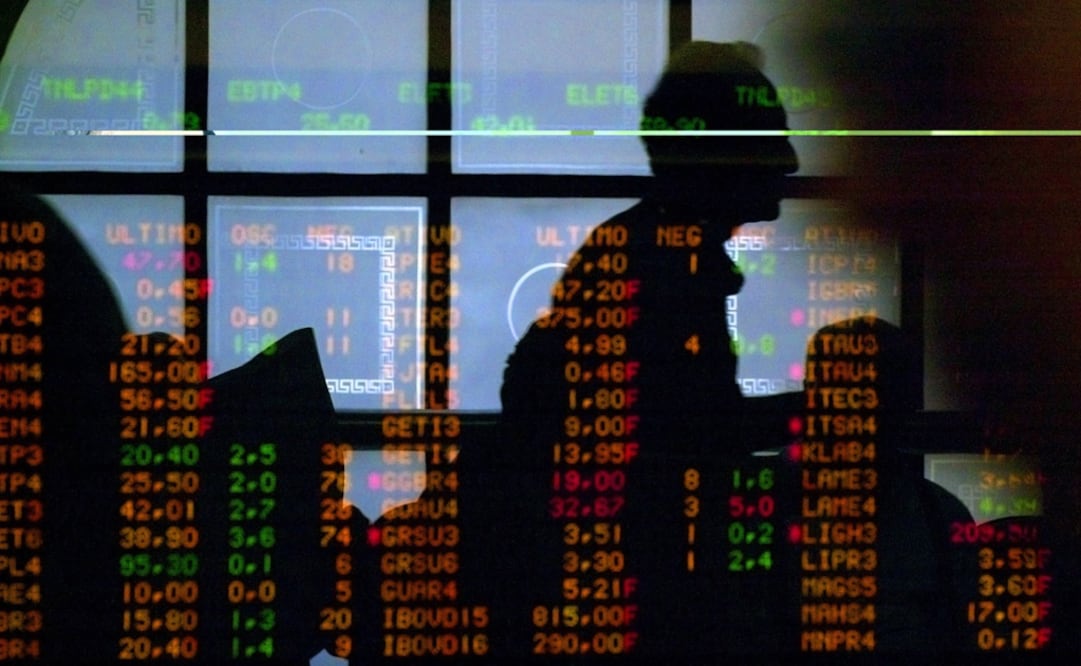Más Información

Se mueve consumo de fentanilo, vapeadores y alcohol; mira aquí las claves de la Encuesta Nacional de Drogas

Encuesta Nacional de Consumo de Drogas 2025: violencia y malestar psicológico afectan más a adolescentes que a adultos

Dan 3 meses más a Fiscalía de Tabasco en investigación contra Hernán Bermúdez, líder de La Barredora; siguen recabando pruebas

Exhiben presencia del CJNG en la sierra de Michoacán; frustran nuevo ataque con explosivos en Coahuayana

Adiós impuesto a videojuegos; Sheinbaum anuncia que ya no va porque es muy difícil distinguir los que tienen violencia
The profound change that the international order is undergoing was dramatically shown last weekend, after the United States refused to endorse the Group of Seven ( G7 ) industrialized nations’ statement in Canada , while in sharp contrast with Chinese President Xi Jinping hosting the 18th Shanghai Cooperation Organization ( SCO ) summit in Qingdao , who defended the “ multilateral trade system ” and called to build “an open global economy .”
Heading into his second year in office with the midterm U.S. elections in sight, it is evident that President Donald Trump is fulfilling his right-wing populist and protectionist agenda.
In the context of the difficult and protracted renegotiations of the North American Free Trade Agreement ( NAFTA ), Trump escalated his dispute with Canadian Prime Minister Justin Trudeau over the U.S. steel and aluminum tariffs imposed to Canada , Mexico , and the European Union , which have unleashed the fear of a trade war across the Atlantic.
Before attending the G7 summit in Charlevoix , Quebec , Trump launched his first provocation to the western allies, by inviting Russia to rejoin the G7/G8 format , in spite of its suspension due to the Ukrainian conflict in 2014 .
Once in the Canadian city, where he starred a photography for the ages surrounded by German Federal Chancellor Angela Merkel and other leaders, the real estate tycoon delivered a virtual ultimatum , demanding that their countries must reduce trade barriers to the U.S. or risk losing market access to the world’s largest economy.
“They have no choice. I’ll be honest with you, they have no choice,” Trump told reporters before departing earlier to Singapore , the stage of his historic meeting with North Korean leader Kim Jong Un this week.
He added that companies and jobs had left the U.S. to escape trade barriers abroad. “We’re going to fix that situation. And if it’s not fixed, then we’re not going to deal with these countries.”
Previously, Trudeau declared “we are going to defend our industries and our workers” and “show the U.S. president that his unacceptable actions are hurting his own citizens.”
Trudeau said Canada would stick to its plan to apply retaliatory tariffs to certain U.S. exports beginning July and he stressed that the U.S. tariffs of up to 25% are “insulting” and warned that he “will not be pushed around.”
Fiery response
In a fiery response hours later, Trump lambasted Trudeau calling him “very dishonest and weak,” while the White House Trade Council Director Peter Navarro said on a TV interview that “there is a special place on hell” for the Canadian Prime Minister and National Economic Council Director Larry Kudlow said that Trudeau “really kind of stabbed us in the back.”
The rift in the G7 is considered worse than the row between France , Germany , and the U.S. due to the opposition to the Iraq invasion in 2003 .
It now includes several disputes on strategic issues, such as the Iran nuclear deal , climate change , and the Palestinian conflict .
At the same time, is offering the European Union an opportunity to develop its own foreign policy without the constraints of North Atlantic Treaty Organization ( NATO ) and the “weakest link” composed by the meager German contributions to the alliance.
As the French President Emmanuel Macron summarized, “the six countries of the G7 without the U.S. are a bigger market taken together than the American market. There will be no world hegemony if we know how to organize ourselves. And we don’t want there to be one.”
Half a world away, the mood was positive during the opening of the SCO summit , where Xi ushered India and Pakistan into the political and economic bloc, calling their presence “of great historic significance.”
The Chinese president said “we should reject selfish, short-sighted, narrow, and closed-off policies. We must maintain the rules of the World Trade Organization .”
Consolidating himself as leader of an emerging trend that combines political authoritarianism with free trade, Xi rejected the “Cold War mentality,” praising the unity of the SCO, which includes Russia , the former Soviet republics of Kazakhstan , Kyrgyzstan , Tajikistan , Uzbekistan , and Belarus . Iran , Mongolia , and Afghanistan have observer status.
China
and India are expected to be the driving force of the future global economy, along with southeast Asian countries such as Singapore , Indonesia , and Malaysia .
China
alone is expected to contribute around 30% of the total increase in global GDP over the next decade, with India accounting for another 10% , according to the International Monetary Fund ( IMF ).
Many of the G7 economies are contributing less and less to global growth . Last year, the United States grew at 2.3% , the European Union grew at 2.5% , and Japan grew at 1.6% . India and China , meanwhile, are growing at 7.7% and 6.8% , respectively.
Still, many differences remain among SCO members, including competition between Beijing and Moscow for regional influence and the long-standing border disputes between China , India , and Pakistan .
However, there is room for more cooperation , considering the comparative advantages of China, eager to find new markets and relocate its industries, and India, in dire need of jobs to employ its growing labor force.
Edited by
More by
Noticias según tus intereses
[Publicidad]
[Publicidad]










